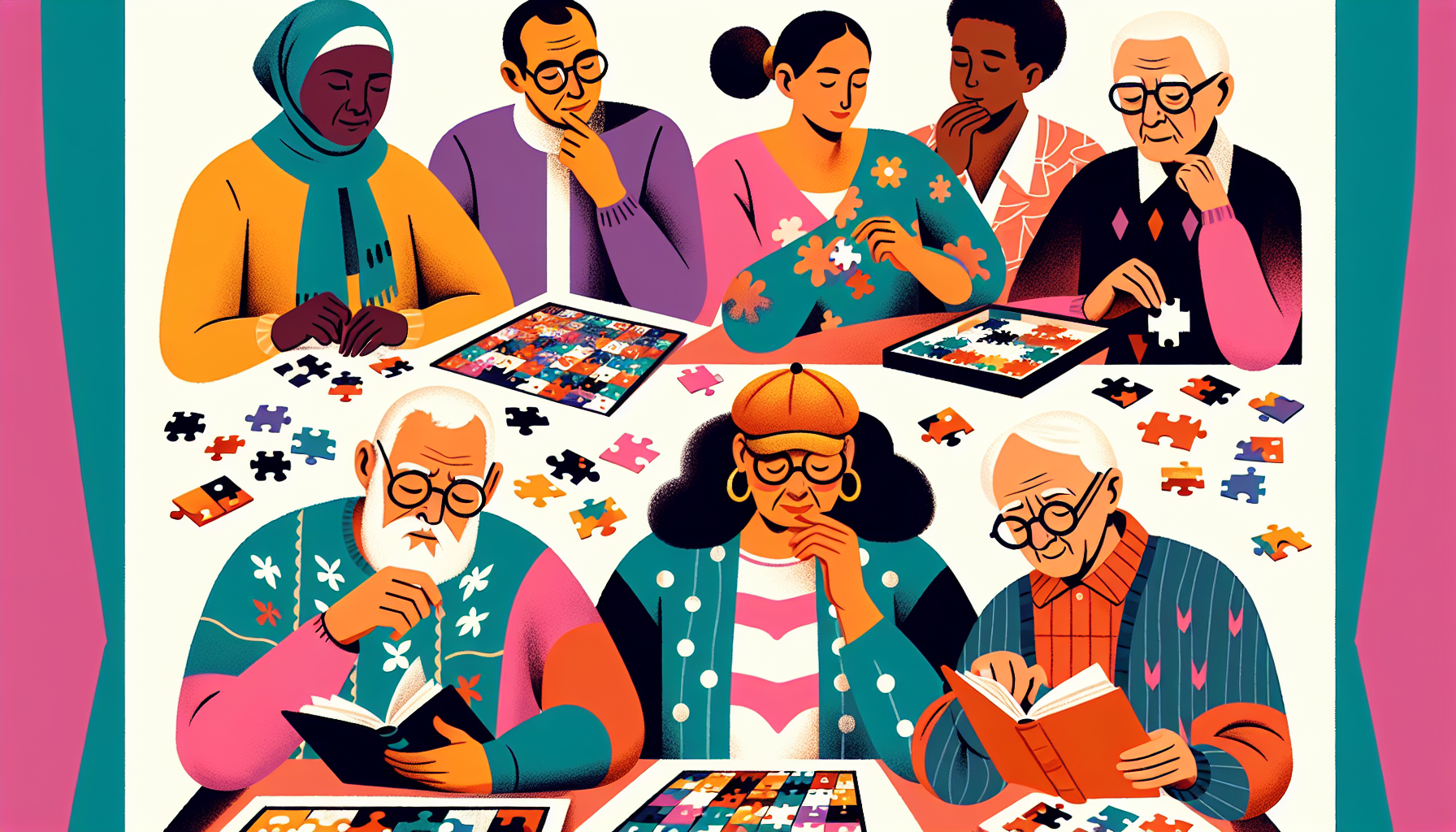As the world’s population ages, cognitive health becomes an increasingly critical area of concern. With a significant portion of the population entering their golden years, finding effective cognitive improvement techniques for the elderly is not just a personal concern but a public health priority. The following article explores various strategies that can help maintain and improve brain function, ensuring a better quality of life for seniors.
The Importance of Brain Health
Cognitive functions like memory, attention, and problem-solving can decline with age, affecting an individual’s ability to lead an independent, fulfilling life. Fortunately, research suggests that the brain remains ‘plastic’ throughout life, implying that with the right stimulation and care, cognitive decline can be slowed, halted, or even reversed in some cases.
One of the foundational elements of maintaining cognitive health is ensuring overall brain health. This involves a combination of proper nutrition, physical exercise, mental stimulation, and social interaction, as well as managing health factors like cardiovascular risks that might negatively impact the brain.
Nutritional Interventions
Diet plays a vital role in maintaining cognitive health. Nutrients such as omega-3 fatty acids are known for supporting brain structure and function. The article "How Omega-3 Fatty Acids Support Brain Health" highlights the importance of these fatty acids in maintaining neuronal health and reducing inflammation.
Another critical nutrient is vitamin D, often referred to as the "sunshine vitamin," which has been linked to cognitive function and brain health. The role of this nutrient is further expounded in "Role of Vitamin D in Brain Health and Function".
In addition to these, balancing neurotransmitters is essential for brain health, as they are the chemical messengers that transmit signals throughout the brain and body. This balance can be achieved through diet, lifestyle changes, and sometimes supplements. The nuances of this process are detailed in the article "Balancing Neurotransmitters for Better Brain Health".
Physical Exercise
Physical activity is not just good for the body; it’s also vital for the brain. Engaging in regular aerobic exercise has been shown to increase the size of the hippocampus, the brain area involved in verbal memory and learning. For more on how exercise enhances cognitive functions, readers can explore the link between physical activity and brain health in the article "Brain-Enhancing Effects of Aerobic Exercise".
Mental Stimulation and Lifelong Learning
Keeping the brain active through lifelong learning and mental challenges is another effective way to promote cognitive health. This can be achieved through activities such as reading, playing musical instruments, engaging in hobbies, or learning a new language. The cognitive benefits of bilingualism, for instance, are well-documented, with research suggesting that speaking two or more languages can delay the onset of dementia and cognitive decline. An in-depth examination of this can be found in the article "Evaluating the Cognitive Benefits of Bilingualism".
Social Engagement and Emotional Health
Social interaction is crucial for mental health, with numerous studies linking active social lives to better cognitive function. Engaging in community activities, maintaining friendships, and participating in group hobbies can provide emotional support and cognitive stimulation. On the other hand, loneliness and social isolation have been identified as risk factors for cognitive decline in the elderly.
Sleep and Cognitive Function
Sleep quality and quantity have a significant impact on cognitive health. Poor sleep patterns and disorders like sleep apnea can affect memory, executive function, and even the brain’s ability to clear toxins. Strategies to improve sleep hygiene can, therefore, have a profound effect on cognitive health.
Technology and Cognitive Health
In the digital age, it’s important to consider the role technology plays in cognitive health. While excessive screen time, particularly before bed, can negatively impact sleep patterns and cognitive function, technology can also be harnessed for cognitive improvement. Brain training games and applications are designed to improve aspects of cognitive function, such as memory, attention, and problem-solving skills. The benefits and efficacy of these technologies are discussed in "The Benefits of Brain Training Games for Cognitive Enhancement".
External Resources to Support Cognitive Health
For those interested in further exploring the topic, here are several high-quality resources:
- The Alzheimer’s Association offers comprehensive information on brain health, cognitive activities, and strategies for dealing with cognitive decline.
- The National Institute on Aging provides research-based information on aging and cognitive health, including tips for healthy living and cognitive function.
- The Blue Zones Project showcases lifestyle habits from regions around the world known for their high rates of longevity and cognitive health.
- The Brain Health Registry collects data to advance brain health research and offers cognitive tests and activities for participants.
- AARP’s Staying Sharp program includes articles, activities, and advice on maintaining cognitive function as one ages.
Incorporating the techniques and strategies discussed in this article into daily life can make a substantial difference in cognitive health for the elderly. By adopting a holistic approach that includes nutrition, physical activity, mental stimulation, social interaction, and technology use, seniors can protect and enhance their cognitive function, leading to an enriched and more independent life.



